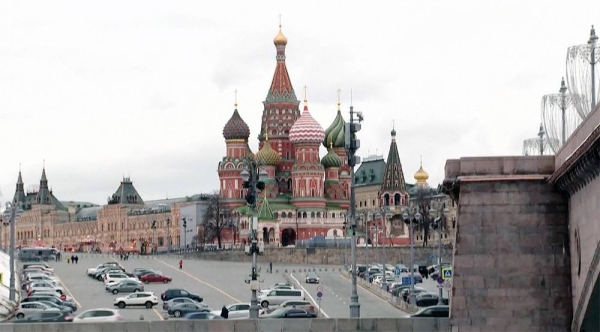
During last week’s Manama Dialogue, I was struck by some unusually strident statements from Western officials regarding the geopolitical threat emanating from Iran.
Comments from the president of the European Commission, Ursula von der Leyen, deserve quoting at length. She said: “Several Gulf countries have been warning for years about the risk that Iran feeds rogue nations around the world with drones. It took us too long to understand a very simple fact that while we work to prevent Iran from developing nuclear weapons, we must also focus on other forms of weapons proliferation, from drones to ballistic missiles. It is a security risk, not just for the Middle East but for us all.”
These remarkable comments tacitly acknowledge how the West systematically chose to ignore warnings about Iran’s ballistic missile and drone programs, and the threat posed by Iran-sponsored region-wide paramilitary armies.
What has changed is that, in recent weeks, Iranian drones and missiles have been used to annihilate the power facilities and civilian infrastructure of a European state, Ukraine. Alongside the significant casualties, tens of millions of people are likely to go without heating and electricity over the winter period as a direct result of Iranian weapons programs.
As US Undersecretary of State for Defense Colin Kahl reminded audiences in Bahrain: Iran’s nuclear activities are now “at their most advanced state ever.” Tehran has been allowed to build up its arsenal of weapons and distribute these to its proxies “despite years of sanctions.” Iranian drones and missiles have been used to attack Gulf shipping — in recent days including missile strikes against an oil tanker in the Gulf of Oman.
Hundreds of Iranian-made missiles have attacked economic and civilian targets throughout the Arabian Peninsula. Iranian munitions and militias killed tens of thousands of innocent Yemenis and Syrians.
Von der Leyen warned that Iran and Russia were jointly undermining the rules of the global order, adding: “Where does this end, if left unchallenged? History shows that this is a recipe for perpetual war. It is a recipe for arms races and the proliferation of weapons of mass destruction.”
We have a right to know whether or not the West possesses any actual strategy for confronting Tehran
Baria Alamuddin
Iran possesses by far the largest programs in drones and ballistic and cruise missiles in the region. Experts worry that the lessons Iran learns from seeing these weapons used in anger against civilians in Ukraine will allow it to increase their accuracy and lethality.
In Bahrain, US National Security Council official Brett McGurk described a “sea change in how the world looks at Iran” in recent weeks. “Iranian-supplied weapons threaten the entire region,” British Foreign Secretary James Cleverly told the Manama Dialogue — as if revealing a hidden truth that his government had only just discovered. He added: “The regime has resorted to selling Russia the armed drones that are killing civilians in Ukraine.” Full marks for stating the obvious — but what will the consequences be for Tehran’s theocracy? Without just criticizing for the sake of criticizing, we have a right to know whether or not the West possesses any actual strategy for confronting Tehran.
In questions I posed to European officials — including Finnish and German foreign affairs ministers — about specific action that could be taken, there was notable evasiveness, beyond recent sanctions against Iranian officials involved in the violent repression of protesters. The German minister talked about increasing sanctions, yet this is a regime that thrives on confrontation and isolation. Sanctions against the legitimate oil sector have only enriched the regime by allowing entities like the Islamic Revolutionary Guard Corps to monopolize the smuggling of oil, drugs, weapons and the full spectrum of other goods.
The export of weapons from Iran violates international sanctions, so the international community is obliged to take action to prevent such movement of arms, including potential measures such as controls on non-civilian flights between Iran and Russia or the indictment of both states for war crimes. European states could furthermore downgrade or halt diplomatic ties with Iran or halt flights and commercial activities.
In defiance of all expectations, protests have continued throughout Iran after more than two months. If anything, the unrest is becoming more violent and entrenched, with several hundred killed, including at least 58 children.
Some 15,000 people have been arrested and several of these have already been sentenced to death — yet this has scarcely deterred the courageous protesters, who will settle for nothing less than toppling the regime. Hard-liners like Ayatollah Ahmad Khatami have encouraged the widespread use of the death penalty, demanding that the judiciary acts “against all these criminals.”
After a shooting incident in Iran’s southwestern town of Izeh, a fake statement was circulated that sought to implicate Daesh in the incident, in what appears to be a part of calculated efforts by the regime to discredit protesters and portray them as terrorists and extremists. Similar efforts have been made to undermine protesters in Kurdish regions. In reality, the only terrorists and extremists are the ones charged with running the country.
I asked several Western officials why the international community was not doing more to support the protesters and, in many cases, the response was that this would allow the regime to claim that the uprising was foreign-backed. Yet the regime is constantly alleging this anyway, so what difference would this make?
Now that Western officials are beginning to acknowledge the threat that Iran poses, their goal should not merely be behavior change. There have now been two decades of consolidated diplomatic efforts to halt the regime’s military nuclear program, and what has this achieved? The mullahs’ regime is on the cusp of building atom bombs, negotiations have broken down altogether and cooperation with the International Atomic Energy Agency has virtually ceased.
A big problem is that, despite all the effusive Western pledges of “partnership” on show in Manama, the repeated breaking of commitments has severely damaged the trust of Gulf states. Actions, not words, is the only way this can change. Among such examples of tangible action were initiatives discussed in Manama by Gen. Michael Kurilla, commander of US Central Command. Kurilla talked about the planned deployment of a fleet of more than 100 unmanned marine vessels to patrol the seas, as well as a pilot program for targeting enemy drones.
Does the West really believe that Tehran will stop selling missiles and drones to Russia when this regime has a record of exporting weapons to militants, insurgents and pariah regimes throughout Africa and Asia? It likewise beggars the imagination to think how Iran’s military sector will invest this huge cash windfall from the Russians and other clients.
The West should fully commit to the objective of toppling this criminal, terrorist regime. The region, the world and the Iranians themselves will not know stability as long as these brutal theocrats remain in power.
It is heartening to hear senior Western officials beginning to acknowledge this reality. Now enough of the empty rhetoric. What are they actually going to do about it?
Baria Alamuddin is an award-winning journalist and broadcaster in the Middle East and the UK. She is editor of the Media Services Syndicate and has interviewed numerous heads of state.












